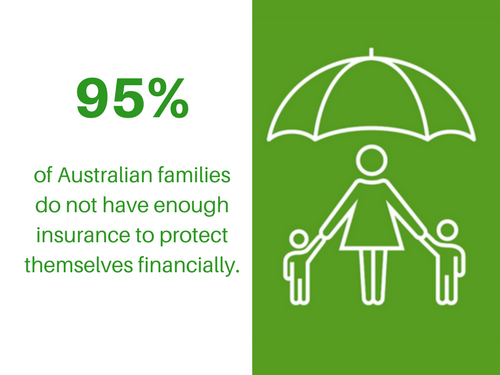Categories
What happens if I let my insurance lapse?

Think about where you would be without insurance if something were to happen to you. If you let your insurance cover slip, you risk being unable to make a claim when you may really need to.
Take a look at our claims statistics below and you’ll see that, more often than not, it’s our older customers who are more likely to experience the benefits of having insurance cover.
Insurance claims by age
|
Under 30 years |
2.6% |
|
30 to 39 years |
10.2% |
|
40 to 49 years |
25.4% |
|
50 to 59 years |
40.9% |
|
60 years+ |
20.9% |
Source: AMP retail claims 2016.
Based on the statistics above, if you’re over the age of 50 there is a higher chance you’ll need to make a claim on your policy at some point in the future. So it’s worthwhile considering the value of your insurance and your personal situation before you let it go.
Health, age and changing legislation
If you let your insurance lapse, it means you're no longer covered. And getting the same level of cover again, should you ever want to, may be difficult.
You may need to go through underwriting again as your age and health status may have changed, but it’s important to know it’s not just age and health-status that can affect a new insurance application. This applies to insurance you may have inside or outside of super.
As an example, changes to super legislation mean some policy options1 held in super are no longer available for new applicants at all. So in this instance, cover that was once in place and then lapsed is now gone for good.
It pays to stay protected
While you need to understand your own circumstances and changing needs, often one of the main reasons customers let their insurance lapse is to save money.
An insurance policy may be yet another expense in your budget but ironically, not being covered for an event that actually happens can be far more expensive than the cost of a policy.
Insurance can give you peace of mind as you near retirement. If you need to claim, your regular super payments may be covered too so you’d continue boosting your retirement savings even if you’re out of action.
How to manage the affordability of insurance
As dependents leave home and your debt levels reduce, you should probably reconsider the level of cover you need and have. The key is to make sure your insurance always meets your current needs.
You could even save on the cost of your policy if your needs change and you don't require the same amount of cover. Our insurance calculator can help you determine how much cover is enough.
Insurance through super is an option where you don’t have to pay for your policy from your household budget, however it does come out of your super and proceeds may be subject to tax. Accordingly, you need to carefully consider your personal circumstances and decide whether this option is right for you.
For more help, contact the Paris Financial office on 03 8393 1000.
Darren Foster, Senior Financial Planner, Paris Financial
Follow me on Twitter @darren_df
Source: AMP
1 For example, the own-occupation option is no longer available on new total and permanent disablement policies held in superannuation.
